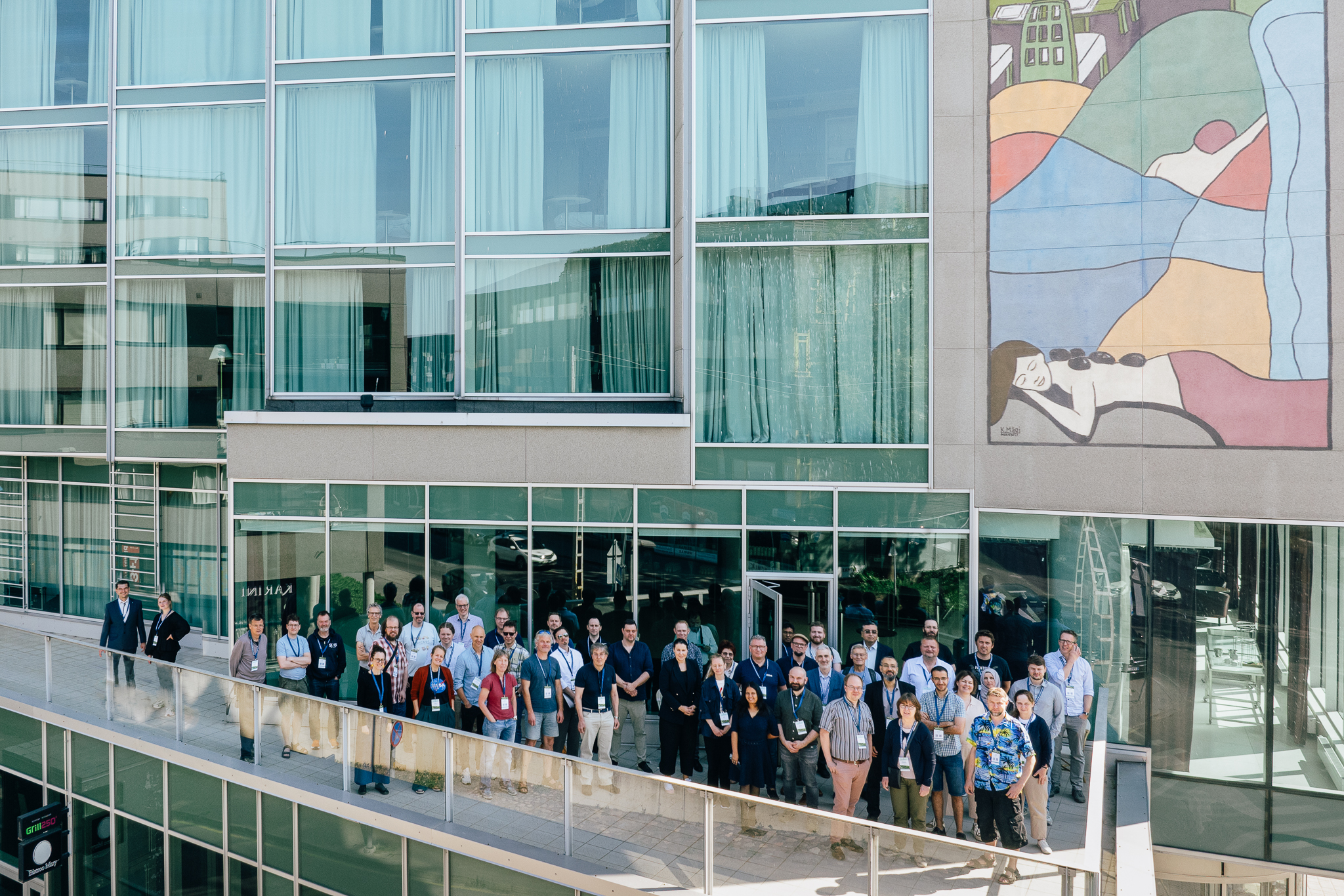Nordic e-Infrastructure Tomorrow: a report from the NeIC 2024 conference in Tallinn
The sixth NeIC conference was held on 27-29 May 2024. The overarching theme of the conference was “Nordic e-Infrastructure Tomorrow”, and the future as well as the impact of e-infrastructure collaboration was indeed discussed in several sessions and from several perspectives. The conference could be attended on site and online, making it the first hybrid NeIC conference. In total 110 people took part in the event.
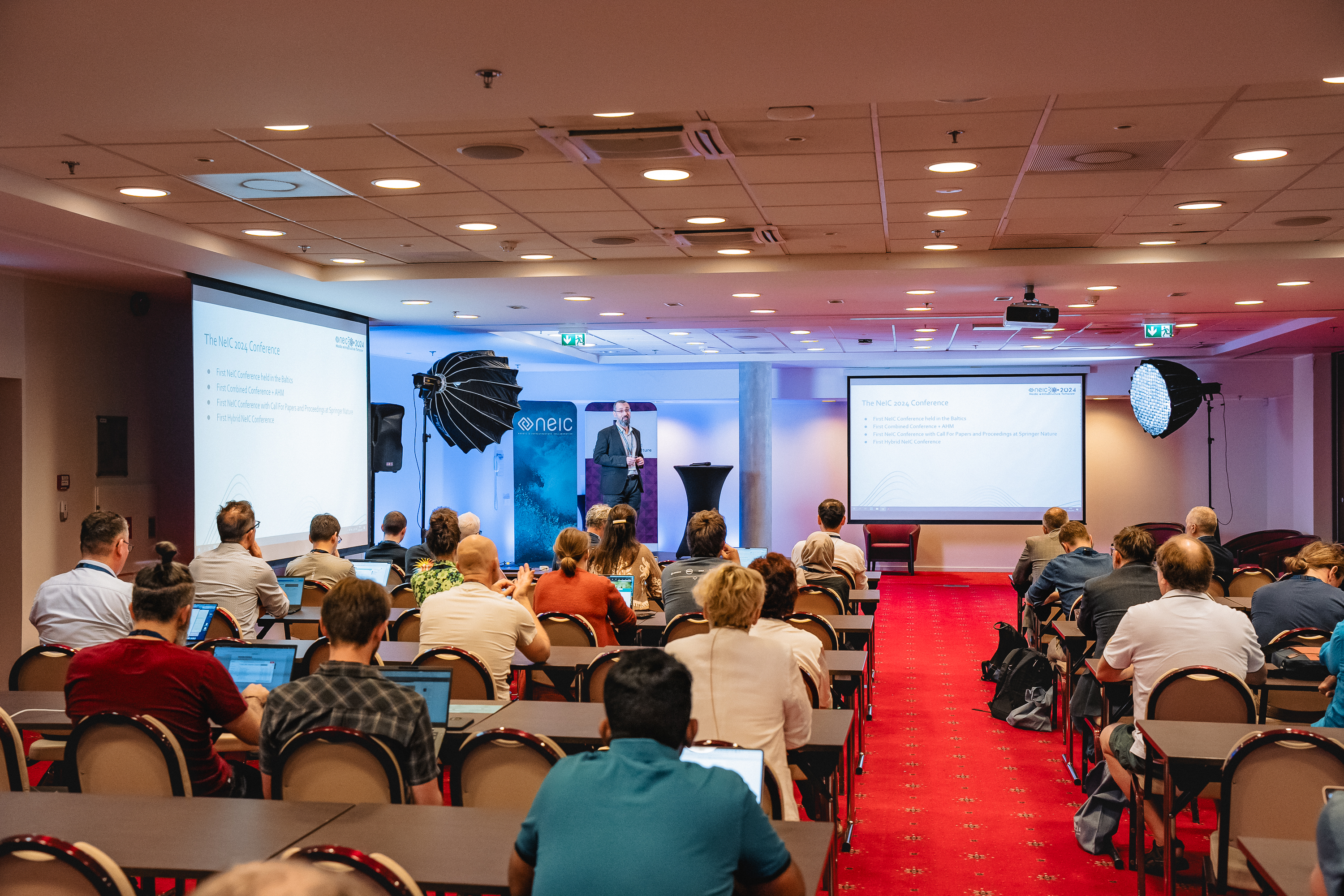
Abdulrahman Azab acted as the Conference chair.
The NeIC conferences date back to 2013 and have since been held every two years, with the exception of the 2021 conference being postponed to 2022 due to the COVID-19 pandemic. These events traditionally serve their participants a versatile three-day programme consisting of keynote presentations, workshops or tutorials, and lots of opportunities for networking. Several long-running traditions, such as the NeIC morning run and the Director’s dinner speech, were present also at the 2024 conference.
This year, the organising committee also wanted to open a call for papers and welcomed submissions from researchers, practitioners, educators, and policymakers across the Nordic region and beyond. Accepted submissions could be presented at the conference and will be included in the conference proceedings published by Springer Nature Communications in Computer and Information Science (CCIS). The accepted submissions will be sent to the publisher in September.
Programme
The 2024 conference consisted of a one-day internal event tailored for the people involved in NeIC’s activities, and a two-day external conference that followed right after. The venue was Park Inn by Radisson Meriton Conference & Spa Hotel in the sunny capital of Estonia.
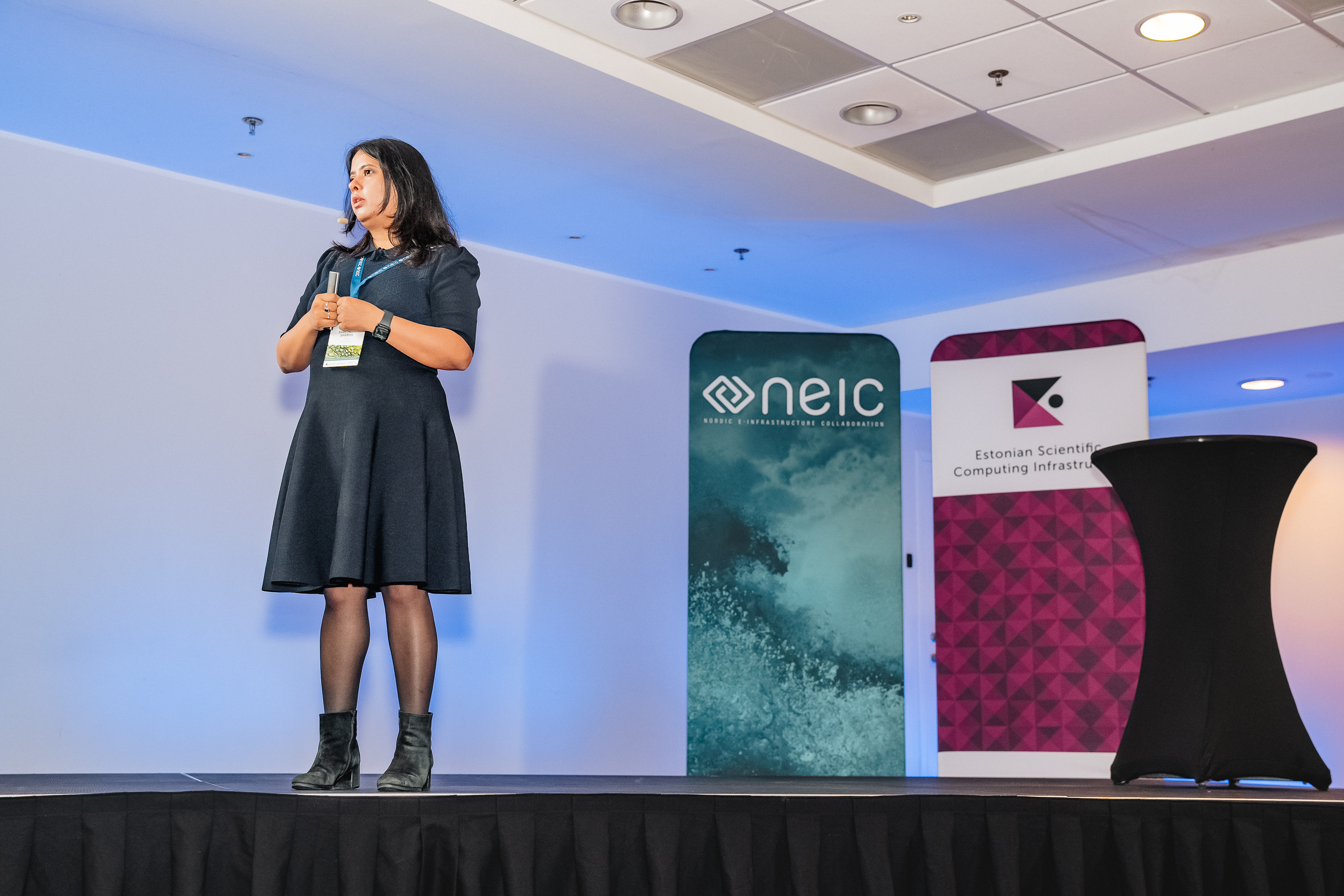
The internal All-hands meeting offered an overview of the ongoing NeIC activities, a keynote talk by Shreshtha Sharma on BioDT - the Digital Twin for Biodiversity -, and some team building in the form of speed dating. In addition, NeICers participating were invited to discuss their thoughts and ideas regarding NeIC’s future. As usual, after the common part, project teams spread out to discuss project-specific matters.
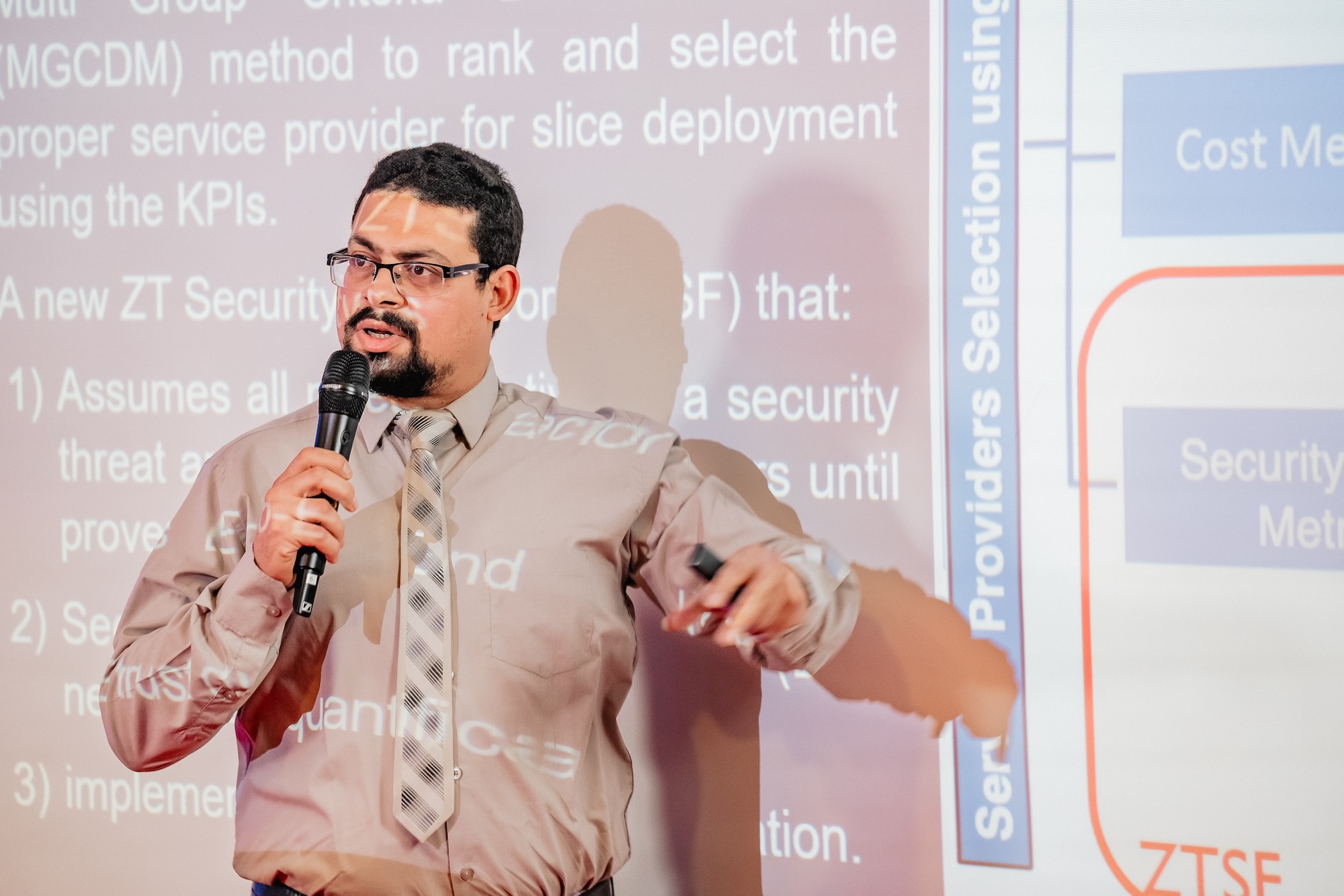
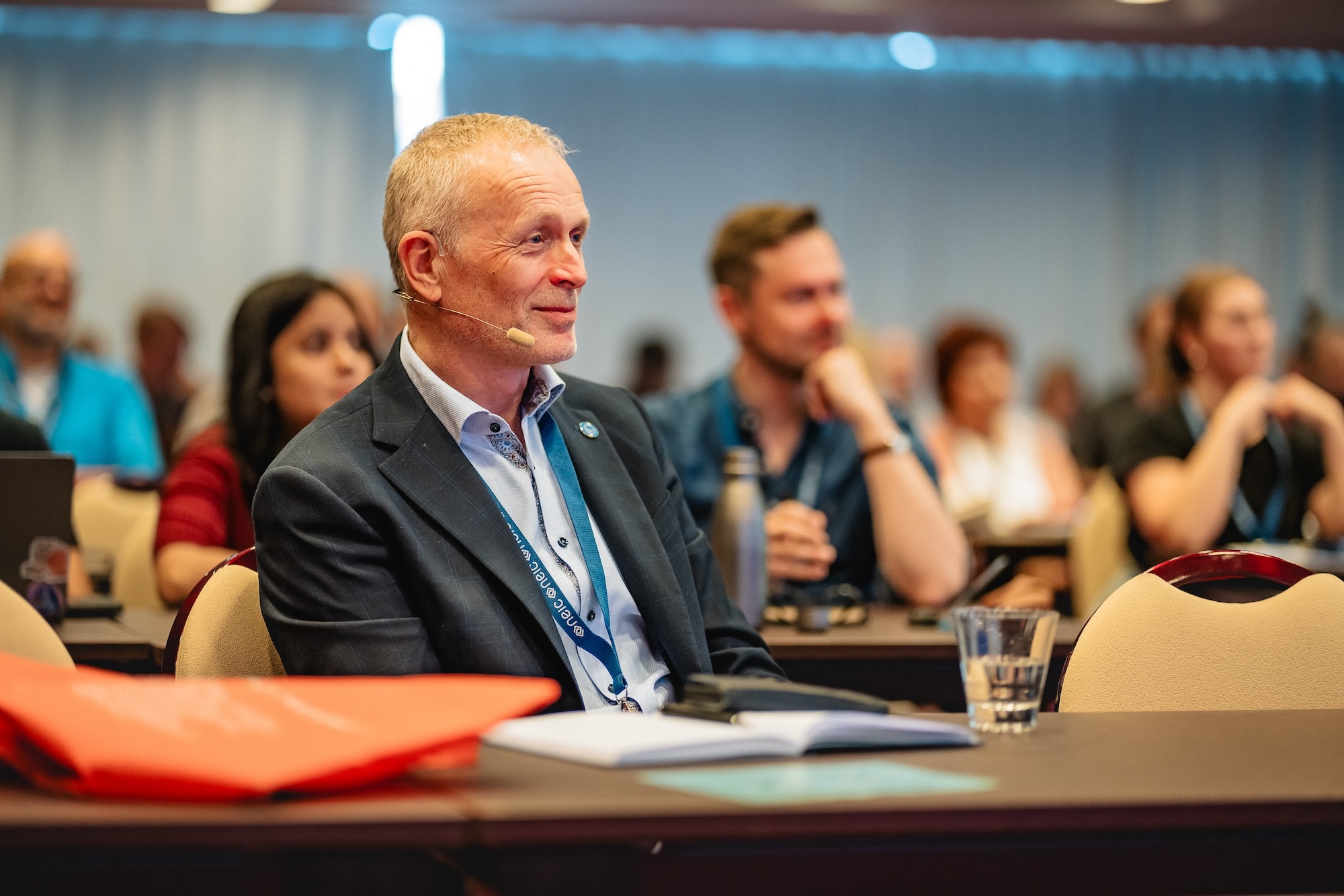
The external conference kicked off with welcome words from representatives from the Estonian government and from NeIC. We had the pleasure of hearing Hisham Kholidy from the State University of New York (SUNY) Polytechnic Institute presenting innovation, trends, and future of cybersecurity, and Arne Flåøyen, the Director of NordForsk, who talked about the future of Nordic infrastructure collaboration in light of the Nordic Council of Ministers’ vision. In the afternoon, authors of the submitted papers were invited to present their topics.
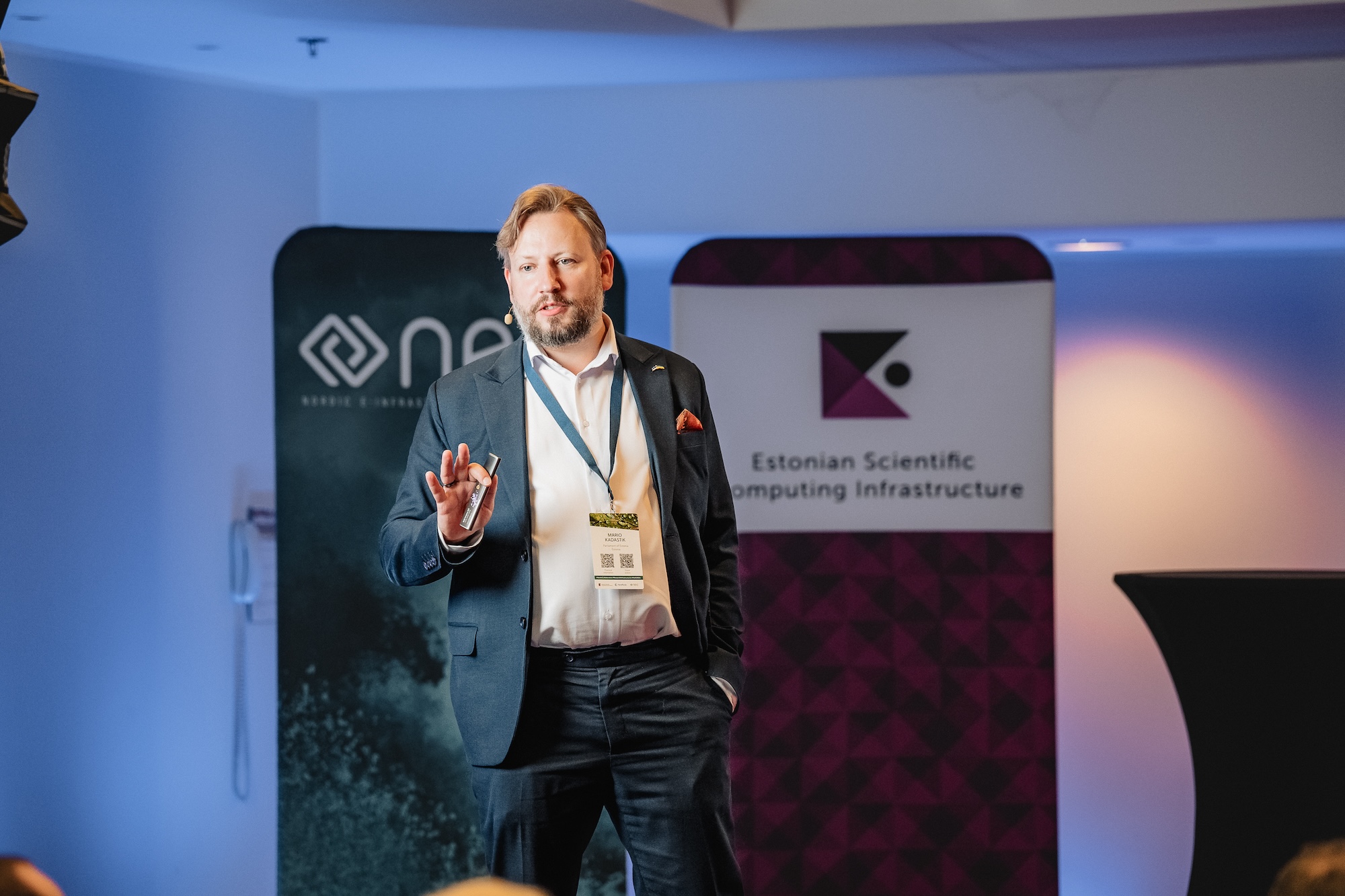
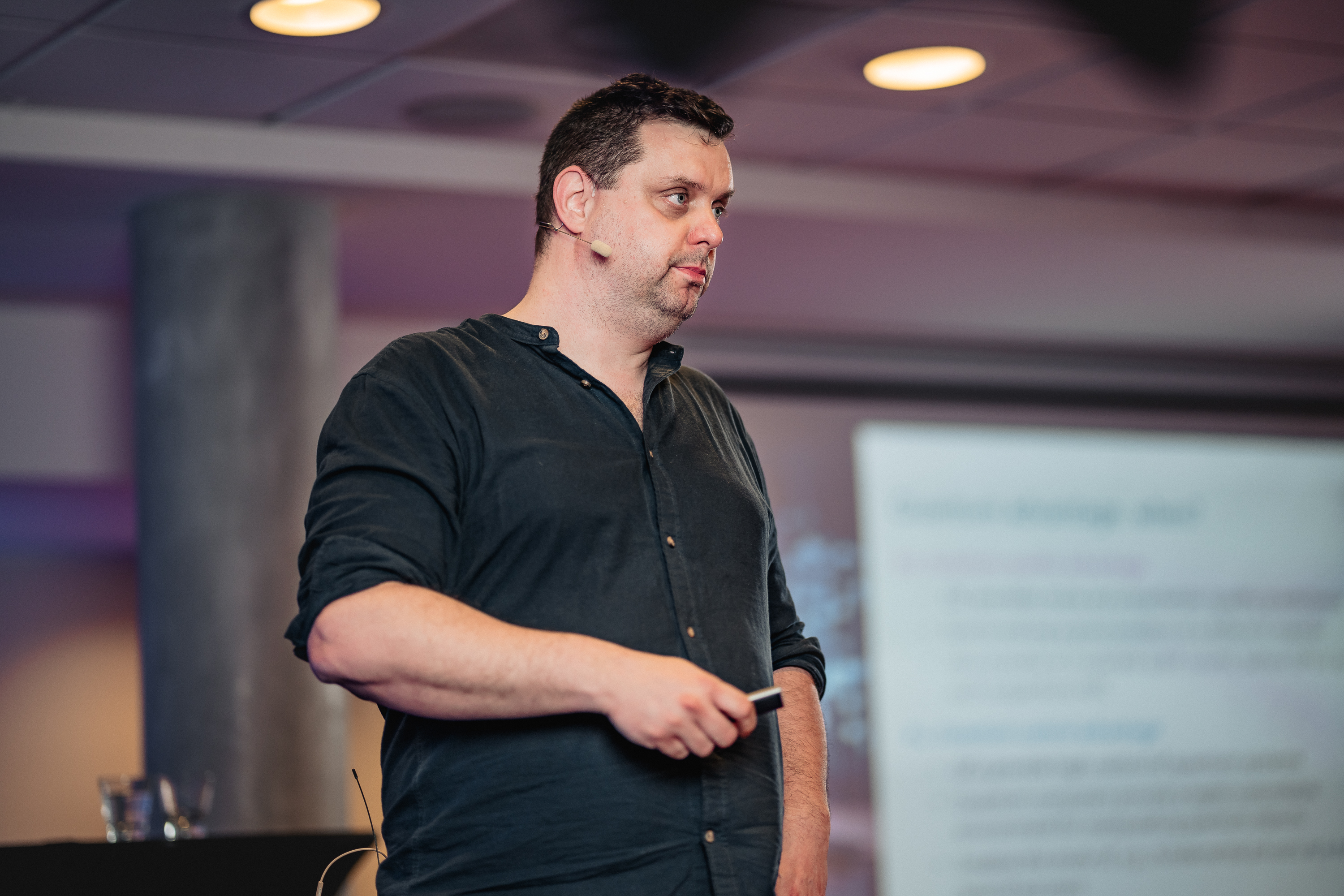
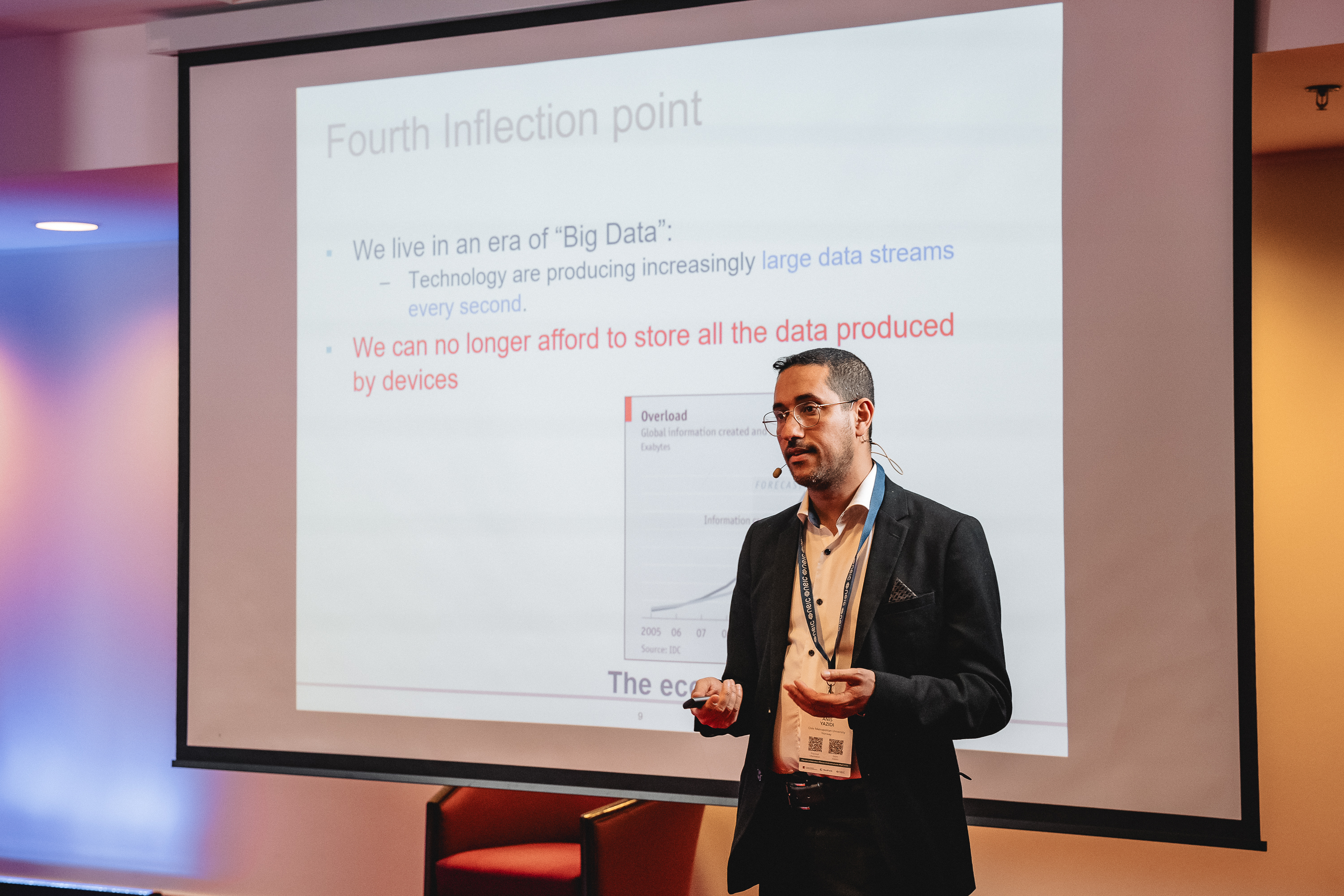
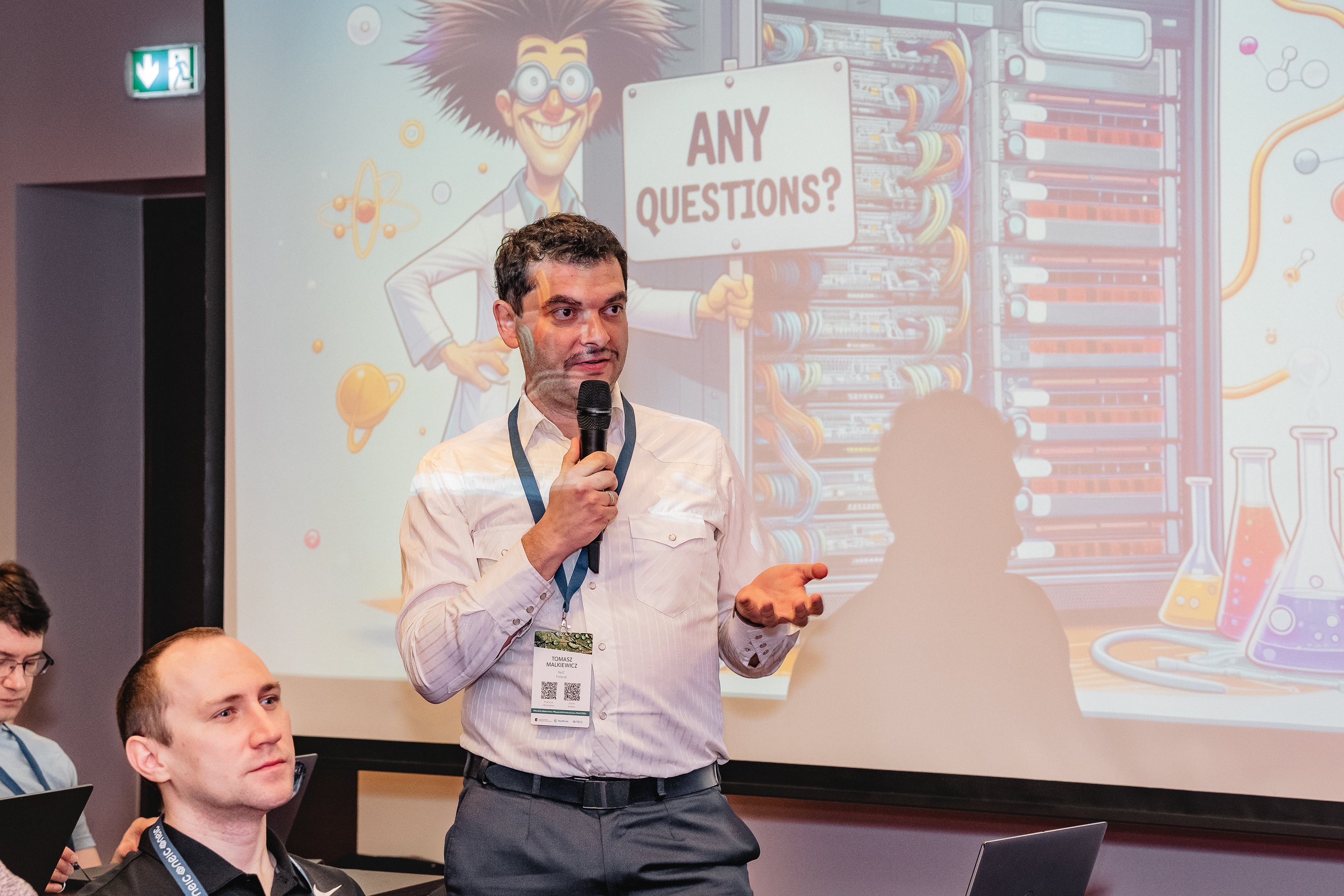
The second day saw three keynotes from several fields of science: Mario Kadastik from the Parliament of Estonia talked about the critical role of e-infrastructures in advancing scientific research; Mikael Johansson from CSC gave a presentation on the limits and potential of quantum computing; Anis Yazidi from OsloMET spoke on AI-powered paradigm shift; and NeIC’s executive manager Tomasz Malkiewicz presented our project management office and the projects, with a focus on the impacts of the collaboration. The afternoon was spent in workshops. There were several to choose from, topics ranging from using AI tools for biomedical sciences to installing and configuring ARC (Advanced Resource Connector).
Most of the conference sessions were recorded, and the recordings can be found here.
Thank you!
The NeIC All-hands meeting is an important way to maintain our culture and provide opportunities to network and learn from colleagues. It was great to see so many attend the internal event and also stay for the conference. We share many of the concerns that were raised regarding the uncertain situation for NeIC. Still, your strong engagement in maintaining and expanding networks gives hope for the future of Nordic collaboration on e-infrastructure for research.
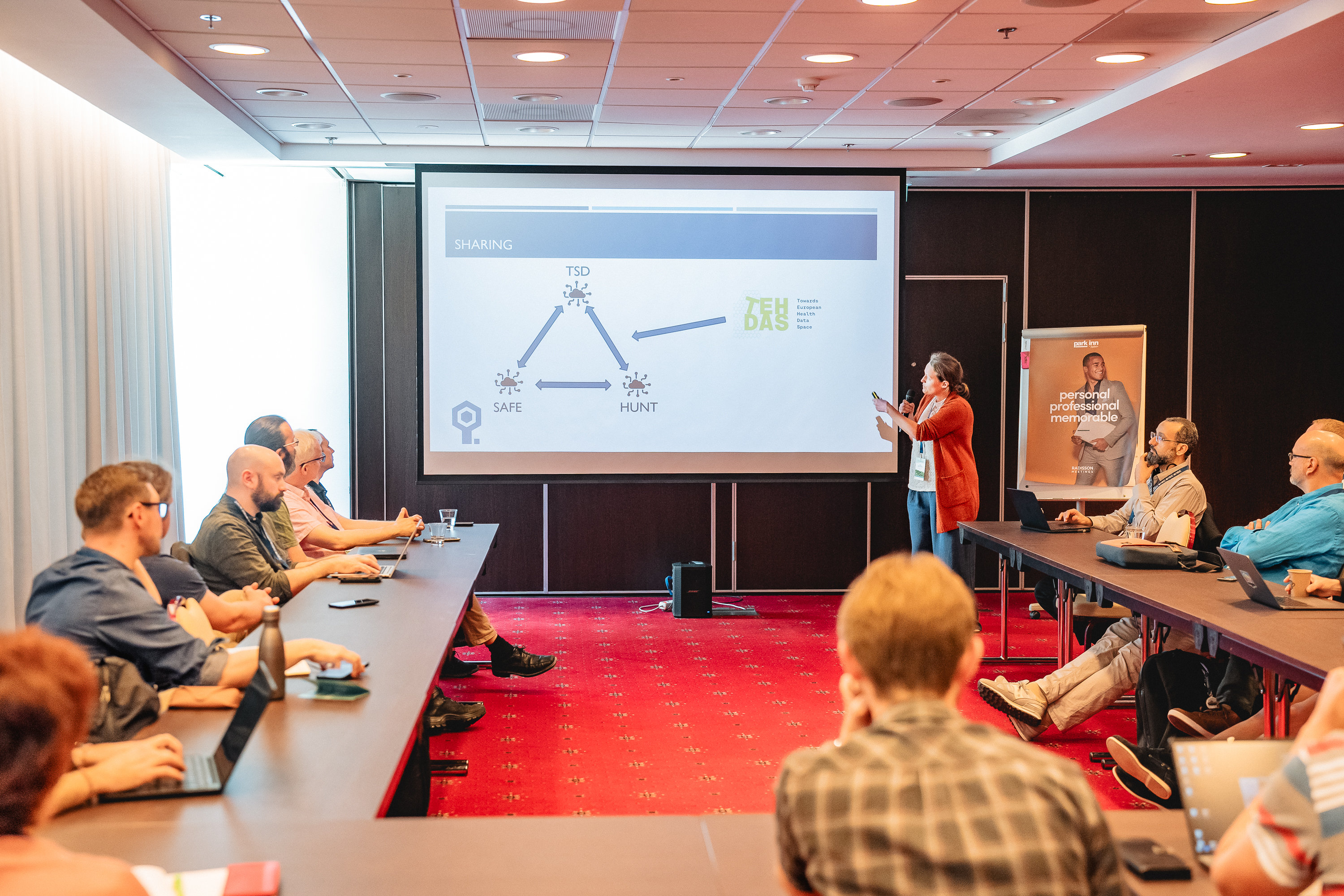
Anne Bergsaker presented one of the papers on Tuesday 28 May.
Thank you to all participants, to everyone who submitted and presented their papers, to workshop organisers, and to all of the invited speakers. Last but not least – a big thank you to the University of Tartu for co-organising and to all who were involved in the organisation of this event!
